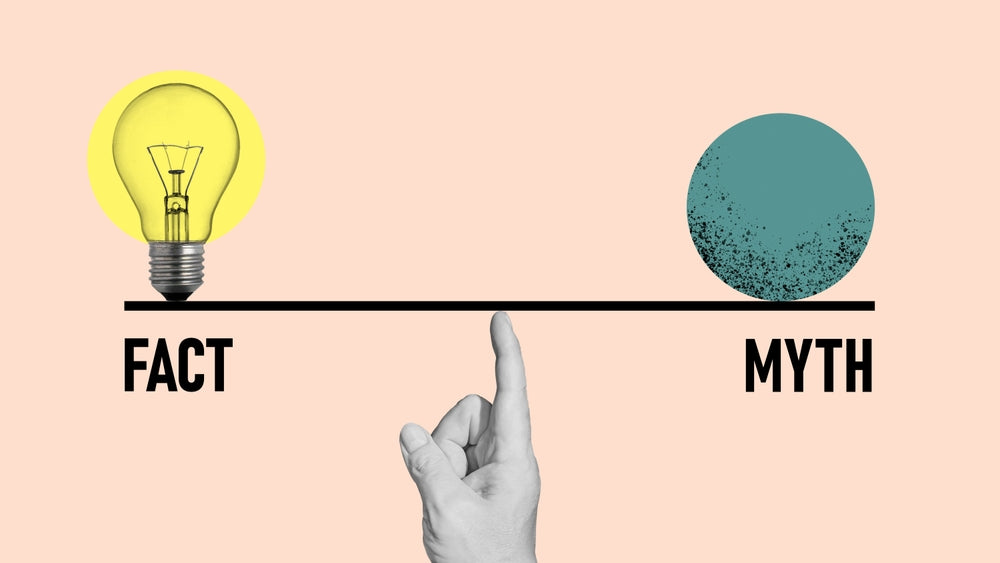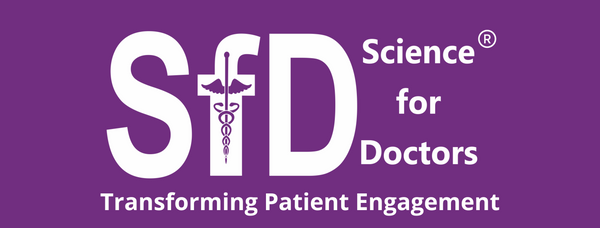
Unveiling Medical Myths: Separating Fact from Fiction
Share
In the realm of health and medicine, misinformation can spread just as quickly as accurate information. Misunderstandings about medical practices and health advice can lead to confusion, anxiety, and even harm. In this blog, we'll tackle some common medical myths and misconceptions to provide clarity and promote better health choices.
1. "You Only Need to See a Doctor When You're Sick"
Myth: Many believe that doctor's visits are only necessary when they're ill or experiencing symptoms.
Fact: Preventive care is crucial for maintaining health and catching potential issues early. Regular check-ups can identify risk factors before they develop into serious conditions. Routine screenings, vaccinations, and health assessments play a key role in long-term wellness.
2. "Vaccines Are More Dangerous Than the Diseases They Prevent"
Myth: Some people think that vaccines carry more risks than the diseases they are designed to prevent.
Fact: Vaccines are rigorously tested for safety and effectiveness before approval. They have been proven to prevent serious diseases like measles, polio, and influenza, which can cause severe complications or death. The risks associated with vaccines are minimal compared to the benefits of disease prevention.
3. "Antibiotics Can Cure Viral Infections"
Myth: There's a common misconception that antibiotics can treat illnesses like the common cold or flu.
Fact: Antibiotics are effective only against bacterial infections, not viral ones. Using antibiotics for viral infections can lead to antibiotic resistance, making bacterial infections harder to treat in the future. For viral illnesses, rest, hydration, and antiviral medications (when prescribed) are more appropriate treatments.
4. "Natural or Herbal Remedies Are Always Safe and Effective"
Myth: Many assume that natural or herbal remedies are inherently safe and free from side effects.
Fact: While some natural remedies can be beneficial, they are not always risk-free or well-regulated. Some herbal supplements can interact with medications or cause adverse effects. It's essential to consult with a healthcare provider before starting any new supplement or alternative treatment.
5. "You Can’t Get Pregnant During Your Period"
Myth: There’s a belief that it’s impossible to conceive during menstruation.
Fact: While the chances are lower, it’s still possible to become pregnant during your period. Sperm can survive in the female reproductive tract for several days, so if you have a short menstrual cycle and ovulate soon after your period, there’s a possibility of conception.
6. "If You're Not Overweight, You Don't Need to Worry About Heart Disease"
Myth: Many think that heart disease only affects those who are overweight or obese.
Fact: Heart disease can affect individuals of any weight. Factors such as genetics, high blood pressure, high cholesterol, smoking, and a sedentary lifestyle contribute significantly to heart disease risk. Regular check-ups and a healthy lifestyle are important regardless of body weight.
7. "Drinking Eight Glasses of Water a Day is Necessary for Everyone"
Myth: There's a belief that everyone needs to drink exactly eight glasses of water daily.
Fact: Hydration needs vary depending on individual factors like age, activity level, climate, and health conditions. While staying hydrated is important, the specific amount of water needed can differ from person to person. Listening to your body's signals and drinking when you're thirsty is generally a good guideline.
8. "You Shouldn't Exercise When You're Sick"
Myth: It’s commonly thought that all exercise should be avoided when you're feeling under the weather.
Fact: Mild to moderate exercise can sometimes be beneficial even when you're experiencing a mild cold, as long as you’re not running a fever or dealing with more severe symptoms. However, it's crucial to listen to your body and rest when needed, and to consult with a healthcare provider if you're unsure.
9. "All Supplements Are Beneficial for Health"
Myth: There’s a belief that taking supplements will improve health and prevent illness.
Fact: Not all supplements are necessary or beneficial for everyone. Some may have limited evidence supporting their effectiveness or could even be harmful in large doses. A balanced diet usually provides the necessary nutrients, and supplements should be used only if recommended by a healthcare provider.
10. "Mental Health Issues Are Just in Your Head"
Myth: Mental health problems are often misunderstood as merely being a matter of willpower or emotional weakness.
Fact: Mental health conditions are real, medical issues that can affect anyone, and they often have biological, psychological, and social components. Treatment and support are crucial for managing mental health conditions, and seeking professional help is important for recovery and well-being.
Conclusion
Understanding and debunking medical myths is essential for making informed health decisions. By relying on credible sources and consulting healthcare professionals, you can avoid misconceptions and take proactive steps towards better health. If you have questions or concerns about your health, always seek advice from a qualified medical professional.
